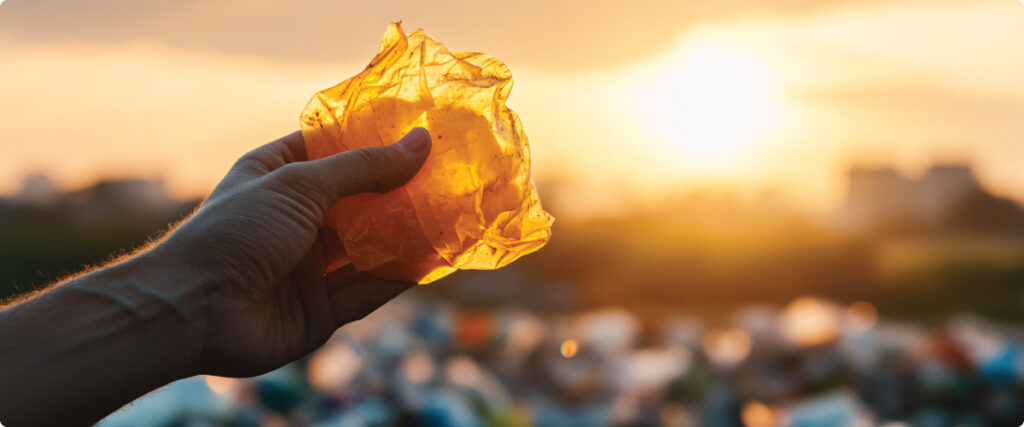The problem with plastics

The Problem
Versatile, lightweight, and durable, it’s no wonder why plastics are so widely used in our daily lives. Every year, over 400M tonnes of plastic is produced, with about 8M tonnes of that leaking into the ocean. That’s equal to dumping one garbage truck into the ocean every minute! This waste doesn’t just disappear – it breaks down into smaller particles known as microplastics, which have infiltrated every corner of the globe, from the deepest ocean trenches to the highest mountain peaks.
More alarmingly, plastic pollution has been responsible for the death of more than 100,000 marine animals each year, with entanglement and ingestion accounting for a big portion of that.
On land, it doesn’t get much better. Microplastics have been found in the air we breathe, the water we drink, and the food we consume. These tiny particles might seem harmless, but excessive consumption of them could pose risks to our health.
The production and disposal of plastics are also significant contributor to climate change, accounting for approximately 8% of global oil consumption. As they break down, and disintegrate into microplastics, they release greenhouse gases like methane and ethylene, exacerbating the climate crisis.
What can we do about it?
Despite the severity of the problem, there are actions we can take to mitigate its impact
1. Reduce, Reuse, Recycle
This age old mantra is more relevant now than ever. By reducing our reliance on single use plastics, reusing where possible, and recycling the rest appropriately, we can significantly reduce plastic production and the amount of plastics entering the environment. At Rainbow, we take these recycled plastics to make new products, never using virgin material. Click here to see our range of recycled products.
2. Choose alternatives that are safe for the environment
Alternatives like plant-based and biodegradable can help reduce the impact of plastics. Plant-based materials, like our biomer, avoids the use of oils to make a more carbon lite product. Biodegradable materials, like our terramer, decompose in natural environments in a specific time frame, leaving no trace behind.
Every choice we make has an impact. By choosing carefully, our individual actions, when multiplied across communities, can lead to substantial change, slowing the tide of plastic pollution and helping to protect our planet for future generations.
